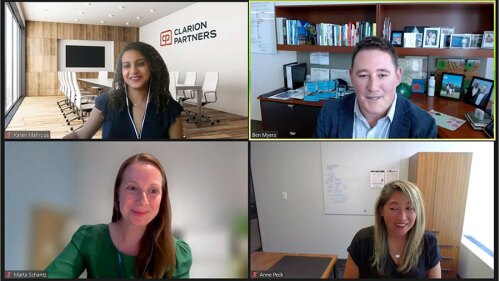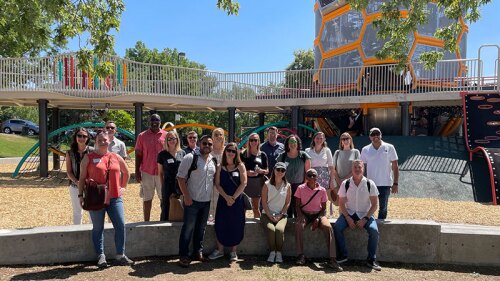The real estate industry can use the next 24 months wisely by committing to six changes in its practices, thereby laying the foundation for a more successful outcome when the market returns.
- Retool and retrain staff to look beyond the spreadsheet. Now is the time to instill in the next generation of real estate development professionals the importance of what the industry does and the significant impact it has on the planet, communities, and families.
- Change acquisition criteria so sustainability is the inevitable consequence of a smart purchase, rather than a regulatory or technological intervention. With so much distressed real estate coming to the market, look for properties whose location, assets, orientation, flexible design, materials use, and core systems already support—or can easily be adapted to support—a smaller carbon footprint.
- Work collaboratively with regulators and review agencies to change the approval process. It may require industry leadership to convene the forums and bring the appropriate people to the table, but the industry must facilitate an outcome two years from now in which high-quality, responsible development is easier to get approved than conventional, commodity development. EPA’s “Essential Smart Growth Fixes for Urban and Suburban Development Codes” provides an example of how the industry can use this time wisely to help reshape the tools that have made it that much more challenging to move from commodity to responsible real estate.
- Gather the needed data. The industry needs to refine the broader scorecard of return by looking at how green projects are performing now and as real estate comes out of this downturn. The recent founding of the Greenprint Foundation is one example of the industry’s leaders stepping up to create a scalable data set of the value of more responsible approaches to real estate—in this case the carbon reduction benefits of energy retrofit strategies. But it is also important to see if the premium for green and sustainable development will be made more evident as real estate recovers.
- Develop the skills necessary to work with neighborhoods as partners rather than as adversaries. This will require new levels of trust being forged, a transparent accounting of value and costs, and a dialogue about community and developer needs.
- Be realistic about the hurdle rate. Writing in January 2010 for National Real Estate Investor, Ethan Penner, executive managing director and president of CBRE Capital Partners, noted, “The desire to get a real estate return in the high teens or 20 percent is piggish.” Penner’s thesis would suggest that an appropriate return expectation for real estate should be around 10 percent.
If the real estate industry can use this time to recalibrate its thinking about what is an appropriate level of risk-adjusted return, and how it might better account for all costs imposed by real estate development—from commodity to responsible—it may have a better chance to get the next decade of real estate investment right.
See Reinventing Real Estate in which the author discusses at length the move to responsible real estate.



